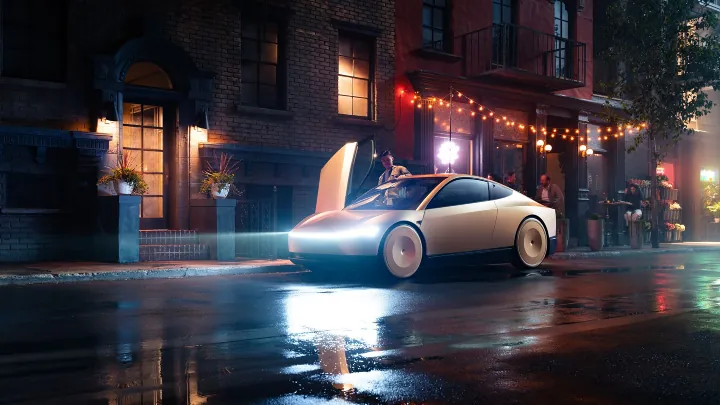In 2024, the global automotive industry is electrifying at an unprecedented pace, with electric vehicles (EVs) claiming a significant share of the market. According to a Bloomberg Green report, electric vehicle sales are projected to surpass 10 million units worldwide by the end of this year, illustrating a seismic shift in consumer preferences. Meanwhile, hybrid and traditional gasoline-powered cars continue to evolve, incorporating cutting-edge technologies to stay relevant. In this article, we’ll explore the latest trends and innovations across EVs, hybrids, and gas cars, providing a comprehensive comparison to help you make an informed decision when choosing your next vehicle.
The Rise of Electric Vehicles (EVs)
Why EVs Are Dominating the Market
Electric vehicles are at the forefront of automotive innovation. With brands like Tesla, Rivian, and BYD pioneering advancements, EVs are transforming the way we think about transportation. Here’s why EVs are taking the lead:
- Zero Emissions: Unlike their gas-powered counterparts, EVs produce no tailpipe emissions, making them an environmentally friendly option.
- Lower Operating Costs: With rising fuel prices, EVs offer significant savings on fuel, complemented by lower maintenance costs due to fewer moving parts.
- Advanced Technology: EVs are often equipped with the latest tech features, from autonomous driving capabilities to over-the-air software updates.
Key Innovations in 2024
- Battery Technology: The International Energy Agency highlights that new battery technologies, like solid-state batteries, are set to increase the range and decrease charging times.
- Charging Infrastructure: Companies such as ChargePoint and Tesla are expanding their networks, promising faster and more accessible charging solutions.
Hybrid Vehicles: The Best of Both Worlds?
Understanding Hybrid Technology
Hybrid vehicles combine an internal combustion engine with an electric motor, offering a balance between traditional and electric power. Brands like Toyota and Hyundai are at the forefront of this category, continuously enhancing hybrid technology.
- Fuel Efficiency: Hybrids typically offer better fuel efficiency than gas cars, thanks to regenerative braking and electric motor assistance.
- Flexibility: With both gas and electric power, hybrids can switch seamlessly between energy sources, providing peace of mind for longer journeys without charging stations.
2024 Hybrid Innovations
- Plug-in Hybrids (PHEVs): These models, like the Hyundai Ioniq, offer larger batteries and can be charged externally, providing an extended electric-only range.
- Smart Technology: Advanced energy management systems and connectivity features are becoming standard, enhancing efficiency and user experience.
Gasoline Cars: Are They Still Relevant?
The Case for Gasoline Vehicles
Despite the surge in electrification, gasoline cars remain a popular choice for many drivers. Here’s why:
- Infrastructure: Gas stations are ubiquitous, making refueling quick and convenient.
- Initial Cost: Gasoline cars generally have a lower purchase price compared to EVs and hybrids.
Innovations Keeping Gas Cars Competitive
- Engine Efficiency: Automakers like Ford and Volkswagen are developing more efficient engines to reduce emissions and improve fuel economy.
- Alternative Fuels: Some manufacturers are exploring biofuels and synthetic fuels as greener alternatives to traditional gasoline.
Practical Tips for Choosing Your Next Car
Choosing between an EV, hybrid, or gas car depends on several factors. Here are some practical tips to guide your decision:
Consider Your Driving Habits
- Short Commutes: If you have a short daily commute, an EV might be ideal due to its low operating costs and environmental benefits.
- Long-Distance Travel: For frequent long drives, a hybrid or gasoline vehicle could offer the range and refueling convenience you need.
Evaluate Infrastructure Availability
- Charging Stations: Check the availability of charging stations in your area if you’re considering an EV or PHEV.
- Fuel Stations: Ensure easy access to fuel stations for gasoline cars, especially in rural or remote areas.
Budget Considerations
- Initial Cost vs. Long-Term Savings: While EVs and hybrids may have higher upfront costs, their lower maintenance and fuel expenses can lead to savings over time.
- Incentives and Subsidies: Look into available incentives or tax credits for EVs and hybrids, which can significantly reduce overall costs.
Conclusion: The Future is Electrified
The automotive landscape in 2024 is more diverse and innovative than ever before. Electric vehicles are leading the charge towards a sustainable future, hybrids offer a versatile middle ground, and gasoline cars continue to adapt with efficiency improvements. As you consider your next vehicle purchase, weigh the benefits and innovations of each type against your personal needs and preferences.
Which vehicle type aligns best with your lifestyle? Share your thoughts in the comments below! As we look to the future, one thing is clear: the road ahead is electric, and the journey promises to be exciting and environmentally conscious.

